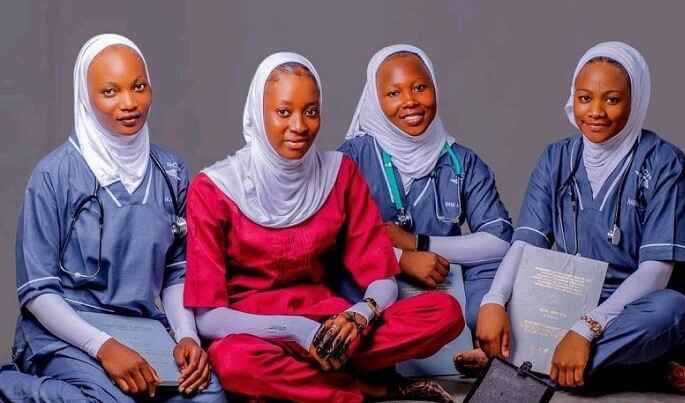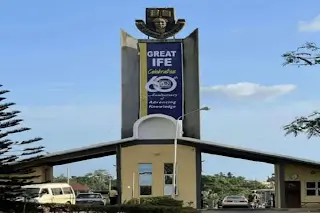Nigerian students who want to earn a degree in Community Health can now do so, as more universities are beginning to embrace the complementary roles and efforts of these health professionals, particularly at the local areas and their immediate communities.
Meaning of Community Health
Community Health focuses on protecting, improving, and enhancing the health of a community and populations through collective action in localised areas.

The course emphasizes health education, providing vaccinations and support to local communities, engaging communities to prevent the spread of communicable and contagious diseases such as cholera and COVID-19, promoting measures to keep communities healthy, and supporting rural dwellers, among others.
Objectives
The objectives of Community Health as a course of study in higher institutions include:
- Training students to carry out community diagnoses, support immunization campaigns at local levels, and mobilize communities against contagious diseases.
- Preparing students to serve as a support system for disease surveillance and prevention efforts.
- Preparing students for leadership positions in community health roles within health institutions and global health organizations such as the World Health Organization (WHO) and other nonprofit bodies.
Nigerian Universities that Offer BSc in Community Health
Here is a full list of 24 Nigerian universities that offer Community Health at the degree level:
- University of Uyo
- Babcock University, Ilishan-Remo
- Wesley University, Ondo
- Madonna University, Elele
- Ambrose Alli University, Ekpoma
- Obafemi Awolowo University, Ile-Ife
- Edo University, Iyamho
- Lead City University, Ibadan
- Nasarawa State University, Keffi
- Nnamdi Azikiwe University, Awka
- University of Lagos
- Bayelsa Medical University
- Covenant University
- Modibbo Adama University, Yola
- Bayero University, Kano (via affiliation)
- Al-Istiqomah University, Sumaila, Kano
- University of Medical Sciences, Ondo
- Al-Hikmah University, Ilorin
- University of Calabar
- Mercy Medical University, Iwara
- University of Ilorin
- Usman Danfodiyo University, Sokoto
- Peaceland University, Enugu
- University of Maiduguri
NOTE:
There are allegations that Bayelsa Medical University gives preference to its indigenes in medical-related courses. We urge you to carry out due diligence before choosing any institution.
Clarification:
Many Nigerian universities offer Public Health, but we did not include them here because Public Health is broader than Community Health. While the goal of Public Health is to prevent disease and promoting health at a population level such as at state level, Community Health is local niche-based such as district or ward, specialising on specific communities and their health needs.
The Growing Trend of BSc in Community Health
Dr. Isaac Ladipo Oluwole (1892–1953) was the first medical practitioner to aggressively champion the need to focus on community health.
Although referred to as the “father of public health” in Nigeria, he saw the need to further narrow the scope of health initiatives to the community level. He pioneered initiatives like weekend sanitation drives in local areas to promote community well-being.
Following his example, other medical professionals also saw the need to unbundle the study of medicine into smaller, more specialized areas, not just focusing on public health, but emphasizing community health as a foundation for disease prevention, starting at the local level.
Thus, the study of Community Health began gaining popularity among Schools of Health Technology, either owned by state governments or private individuals.
Today, there are at least 24 Nigerian universities that offer BSc in Community Health as a degree program.
Class of Degree
It may be called by different names or combined with another health-related discipline, but they all deliver the same objective, focusing on community health.
For instance:
- At the University of Lagos, it’s called Department of Community Health and Primary Care.
- Wesley University in Ondo awards a Bachelor of Science (BSc) in Community Health.
- Lead City University in Ibadan awards a Bachelor of Community Health Sciences (BCHS) under its Department of Community and Allied Health.
Admission Requirements
Whether you already have an ND or HND in Community Health, you must have at least five credits at the Senior Secondary School Certificate Examination (SSCE) in NECO, WAEC, GCE, or NABTEB.
These must include:
- English Language
- Biology or Health Science
- Chemistry
- Mathematics
Direct Entry (DE)
Some universities accept holders of a Diploma in Community Health Extension Worker (CHEW) into their Direct Entry (DE) programs through JAMB. Applicants must also meet the ‘O’ level entry requirements.
Holders of Registered Nursing (RN) or NCE certificates in Health Education, Nutrition, and Science Education can also apply through DE. For example, Al-Hikmah University in Ilorin accepts NCE holders in Physical Education and Home Economics into 200 level.
Admission via Top-Up Programme
If you prefer a conversion program, you can upgrade your Higher National Diploma (HND) in Community Health to a BSc after:
- Earning your HND in Community Health;
- Completing the one-year mandatory National Youth Service (NYSC) or obtaining an NYSC exemption letter.
Through this route, you can upgrade your qualification. (You can check our list of institutions offering conversion programs and be sure that have Department of Community Health.) For instance, UNICAL run Community Health at its Top-up programme, you check.
Duration of Study
- Direct Entry students: Three academic sessions
- UTME students: Four academic sessions, including an internship for practical training.
Regulatory Body
Apart from approval and periodic inspections by the National Universities Commission (NUC) to ensure universities are academically ready to run Community Health programs, there is also a professional regulatory body: the Community Health Practitioners Registration Board of Nigeria (CHPRBN).
Join EdubaseNG WhatsApp Channel to get the latest education & student loan tips
Join our Telegram Channel to get the latest news about Student Loans & Education News.
Are you a stakeholder in education? You can become our guest writer. Write to us using our our email address here




